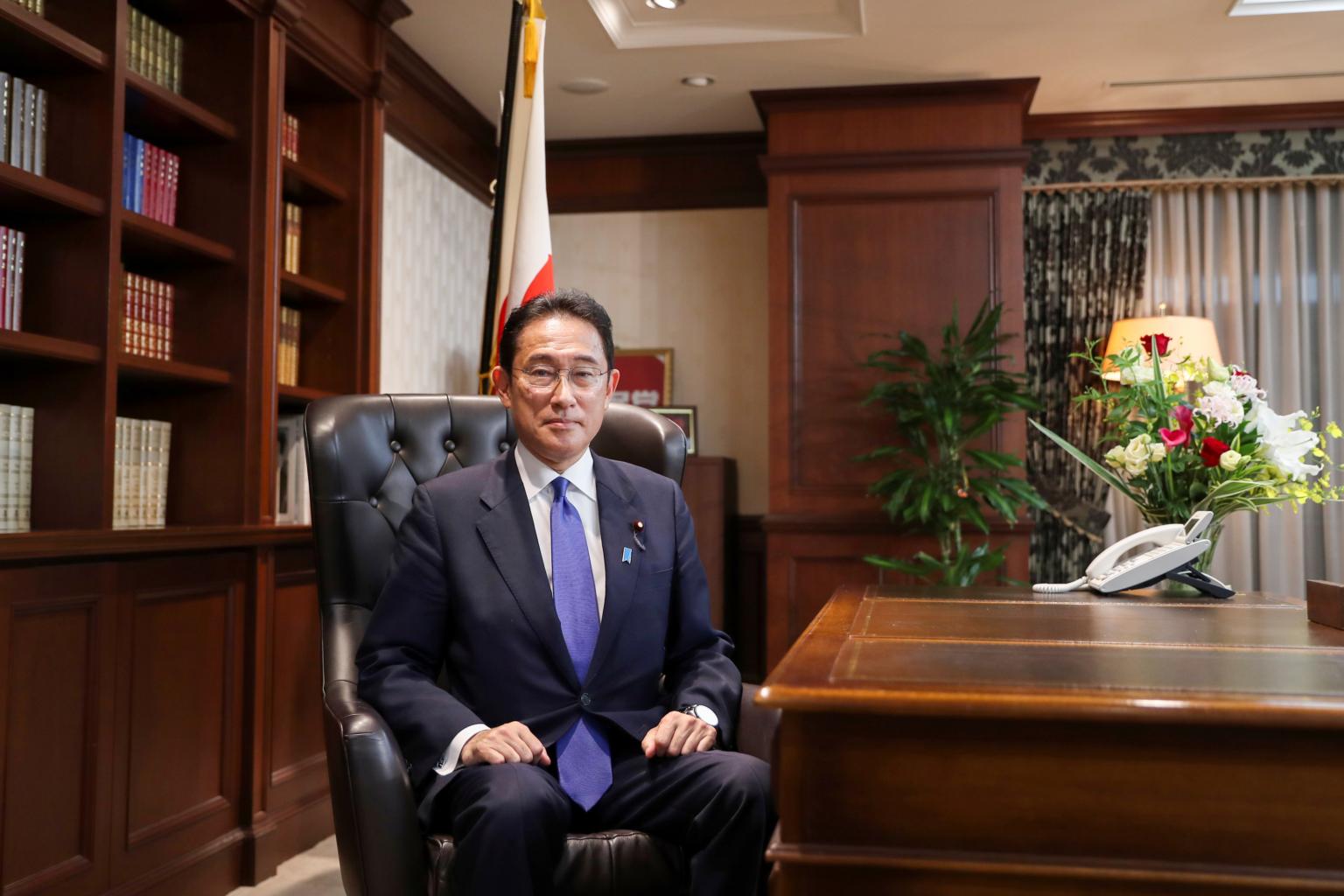China, South Korea watching Japan PM-designate Kishida's foreign policy
Sign up now: Get ST's newsletters delivered to your inbox

Fumio Kishida is set to be sworn in as Japan's 100th Prime Minister in a Diet session next week.
PHOTO: REUTERS
Follow topic:
TOKYO - Japan's neighbours, China and South Korea, are closely watching how prime minister-designate Fumio Kishida will approach foreign policy amid chilly relations with Tokyo.
Mr Kishida has long been known for being dovish, but took a more hawkish tone towards China during his campaign to be elected chief of Japan's ruling Liberal Democratic Party (LDP).
The 64-year-old is set to be sworn in as the country's 100th prime minister in a Diet session next Monday (Oct 4), after defeating three other rivals in the party poll on Wednesday. He succeeds Mr Yoshihide Suga, 72, who is bowing out after just over a year in office.
Japan's neighbours, where wartime wounds still run deep, are however uncertain if Mr Kishida's election will change the status quo.
In China, which is now engaged in an intense rivalry with the United States, Japan's chief security ally, Foreign Ministry spokesman Hua Chunying said that Beijing will work with Tokyo to "deepen pragmatic cooperation in various areas and promote the healthy and stable development of Sino-Japanese relations".
China is Japan's largest neighbour and trading partner, with the two countries set to mark 50 years of bilateral relations next year.
The state-run Global Times noted Mr Kishida's "extreme rhetoric" but wondered if it was just an election ploy to appeal to party conservatives and win votes, urging him not to poison further already deteriorating bilateral ties.
Mr Kishida has acknowledged the need to resume stalled top-level leader summits, though he put China in his cross hairs.
While campaigning, he took aim at alleged abuses against the Uighur minority in Xinjiang, pledging to appoint a prime ministerial aide on human rights.
He also said that countering China would be his priority as prime minister and pointed to the Taiwan Strait as a major flashpoint.
Mr Kishida will also have to navigate treacherous cross-strait ties, with China reportedly miffed by Japan's far more positive reaction towards Taiwan's bid to join the Comprehensive and Progressive Agreement for Trans-Pacific Partnership trade deal than towards its own.
In Taipei, the Foreign Ministry said it hopes Mr Kishida will continue to promote the "all-round friendly and substantive cooperation" between Taiwan and Japan and further stability across the Indo-Pacific.
Mr Kishida's credentials as a diplomat are perhaps best known in South Korea as it was during his tenure as foreign minister in 2015 that the two countries struck a milestone comfort women agreement to "finally and irreversibly" resolve the issue.
The pact has since lost much of its lustre, the subject of dispute in Seoul while Tokyo has refused to be drawn into what it terms "apology diplomacy" having already made past reparations and apologies for its wartime atrocities.
The South Korean presidential office, Cheong Wa Dae, said Seoul anticipated the "development of forward-looking relations" between the two neighbours.
But South Korean analysts cited by the Korea Herald newspaper were not as sanguine, noting that Mr Kishida had no incentive to upset the apple cart considering public sentiment in Japan.
"The new leader will unlikely risk going against the public sentiment to patch ties with Seoul," Professor Lee Won-deog of Kookmin University said. "Ultimately, it's up to Seoul to move first to come up with a changed stance on its key issues."
What is certain, however, is that Japan's robust ties with the US will continue under Mr Kishida, who has vowed to strengthen their security alliance and take measures towards their shared Free and Open Indo-Pacific vision.
A clearer picture of how Tokyo will approach this diplomatic waltz will emerge in the coming days, as the pieces of Mr Kishida's Cabinet and LDP leadership positions start to fall into place.
One man to watch is former economy minister Akira Amari, 72, who was one of Mr Kishida's key supporters in the campaign.
He is likely to be tapped as his second-in-command within the LDP, succeeding the pro-China Toshihiro Nikai, 82, as party secretary-general.
Mr Amari heads an LDP group on economic security that was formed amid escalating US-China tensions, and has warned that Japan must do more to manage data privacy and supply chain risks.
He is also likely to name as LDP policy chief one of his rivals in the party poll, Ms Sanae Takaichi, 60, a staunch conservative backed by former premier Shinzo Abe, media reports said.
All eyes are now on whether the remaining two and more progressive opponents of Mr Kishida - Administrative Reform Minister Taro Kono, 58, and former internal affairs minister Seiko Noda, 61 - will be appointed to key posts.
Mr Kishida's victory was confirmed only after trading hours on Wednesday, but Japanese markets were muted on Thursday, with gains having already been priced in following a rally after Mr Suga's decision to bow out on Sept 3.
Further clouding investor sentiment were overnight losses on the tech-heavy US Nasdaq Index and uncertainty over the debt-laden China Evergrande developer.
The blue-chip Nikkei 225 index closed marginally down by 0.15 per cent, while the broad Topix index fell 0.27 per cent.

